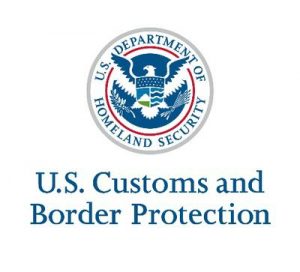
First consumers were hit by surprise tariffs this year. Now they’re learning that in some cases, shipping carriers are destroying packages coming from overseas sellers and suppliers. NBC News’s article, “UPS is ‘disposing of’ U.S.-bound packages over customs paperwork problems,” got many people’s attention on October 10, 2025.
“Thousands of U.S.-bound packages shipped by UPS are trapped at hubs across the country, unable to clear the maze of new customs requirements imposed by the Trump administration,” NBC News wrote. It spoke to over two dozen people waiting for their UPS packages – “They described shipments of tea, telescopes, luxury glassware, musical instruments and more – some worth tens of thousands of dollars – all in limbo or perhaps gone.”
Three days ago, the BBC wrote about consumers and business owners who are also dealing with the threat of their packages being destroyed. A Michigan woman told the BBC she was notified that a package containing her wedding sari, which had also been worn by her mother, was set for disposal.
“Oregon-based Mizuba Tea Co, which has used UPS for more than a decade to import matcha from Japan, has five shipments together worth more than $100,000 held up in processing,” the BBC reported. The current administration is making rapid changes to tariff rules, making it increasingly difficult to meet customs deadlines requirements. “For example, businesses are now responsible for paying tariffs on any steel or aluminium contained in a product , and in many cases vouching for its country of origin – information that many businesses, let alone their shipping companies, do not know,” the BBC said.
The news outlet said many of the ordeals it described were related to the end of the de minimis exemption, which until August had allowed packages under $800 to enter the US without inspection, taxes or tariffs.
“The decision abruptly made an estimated 4 million packages each day subject to new, more onerous processing and documentation rules,” it said. The change is leading to longer processing times and higher, sometimes unexpected, costs across the industry, with customers of UPS telling the BBC they fear their packages have been lost in the backlog.
UPS told EcommerceBytes on Monday that it’s one of the world’s largest customs brokers and that its brokerage services are designed to ensure shipments comply with regulations, pay necessary duties and taxes, and avoid delays. UPS provided EcommerceBytes with the following statement:
“UPS delivers millions of packages on time around the world each day. Because of changes to U.S. import regulations, we are seeing many packages that are unable to clear customs due to missing or incomplete information about the shipment required for customs clearance. With the help of advanced technologies, our best-in-class brokerage team is clearing more than 90% of packages on the first day of entry.
“Our goal is to speed every package to its destination, while complying with federal customs regulations. To continue to serve all our customers and move shipments through our network efficiently, we are making multiple attempts to obtain the necessary information to clear delayed shipments and deliver them.
“We have made more than three contacts per package and assisted with clarifying gaps between information submitted and that which is required. In cases where we cannot obtain the necessary information to clear the package, there are two options.
“First, the package can be returned to the original shipper at their expense. Second, if the customer does not respond and the package cannot be cleared for delivery, it is considered abandoned, and we dispose of it in compliance with U.S. customs regulations.
“We continue to work to bridge the gap of understanding tied to the new requirements and, as always, remain committed to serving our customers.”
Aside from the challenge of overseas shippers adapting to new rules, the tariffs themselves have led to and may continue to lead to some higher prices for US importers and consumers. Companies who pay tariffs are passing along some of those costs to their customers. According to Bloomberg, “US consumers will likely shoulder 55% of tariff costs by the end of the year, with American companies taking on 22%, the Goldman analysts wrote in an Oct. 12 research note to clients. Foreign exporters would absorb 18% of tariff costs by cutting prices for goods, while 5% would be evaded, they wrote.” (Bloomberg news via Yahoo)
A UPS spokesperson told EcommerceBytes that its team of brokerage experts host weekly webinars around the globe to engage directly with customers as they navigate changes in trade policies, answer questions and share best practices for shipping internationally.
Some resources about tariffs on the UPS website include the following:
Tariffs and Their Impact on International Shipping
2025 Tariffs and Their Impact on Global Trade – UPS Supply Chain Solutions
Navigating the 2025 Global Tariffs Landscape
UPS will announce its 2025 third-quarter results on October 28, 2025, when analysts will likely ask them for details about the impact tariffs are having on their customers.
